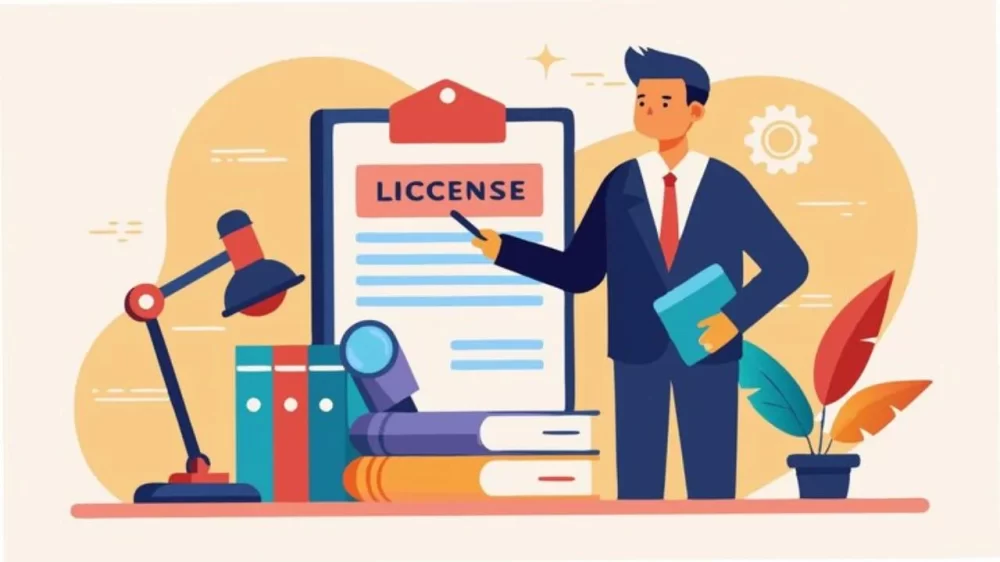
- Understanding Business Licensing Renewals and Their Importance
- Legal Compliance Requirements in Licensing Renewal Processes
- Common Challenges and Pitfalls in Business License Renewals
- Practical Advice and Real-World Examples for Smooth Renewals
- The Role of ESPLawyers in Navigating Licensing Renewals
1. Understanding Business Licensing Renewals and Their Importance
Business licensing renewals are a critical ongoing obligation that every business must manage to remain compliant with regulatory authorities. These renewals ensure that your business continues to operate legally within the framework set by local, state, or federal regulations. Understanding the legal considerations for business licensing renewals means recognizing the deadlines, documentation requirements, and compliance standards that vary across industries and jurisdictions.
Failure to renew a business license on time can lead to severe consequences including fines, suspension of operations, or even permanent revocation of the license. For example, a restaurant failing to renew its health permits risks closure by health inspectors, directly affecting revenue and reputation.
1.1 What Business Licensing Renewals Typically Involve
Renewal processes usually require submitting updated documentation, paying fees, and sometimes demonstrating continued compliance with health, safety, or zoning regulations. Some licenses may also mandate periodic inspections or proof of insurance before renewal approval.
1.2 Why Renewals Are More Than Just Administrative Tasks
Beyond paperwork, renewals are a reaffirmation that your business meets all ongoing legal obligations. Keeping track of these legal requirements protects your business from operational interruptions and legal liabilities.
2. Legal Compliance Requirements in Licensing Renewal Processes
Legal considerations for business licensing renewals extend to ensuring that your business continually meets all applicable regulatory standards. This can include tax filings, safety regulations, labor law compliance, and environmental standards depending on the nature of your business.
2.1 Understanding Specific Industry Regulations
Each industry has unique rules that influence licensing renewal. For instance, construction companies must demonstrate compliance with building codes and safety standards, while financial service providers often face stringent background checks and disclosures during renewal.
2.2 Timely Submission and Accurate Documentation
Legal compliance demands timely submissions of renewal applications along with accurate and complete documentation. Missing deadlines or submitting incomplete forms can delay renewal and expose your business to penalties.
2.3 Impact of Non-Compliance on Business Operations
Non-compliance during renewal can result in license suspension or revocation. This not only disrupts business operations but can damage your company’s credibility and client trust, leading to long-term financial repercussions.
3. Common Challenges and Pitfalls in Business License Renewals
Despite their importance, many businesses struggle with the renewal process due to legal complexities or administrative oversights.
3.1 Overlooking Renewal Deadlines
One of the most frequent mistakes is missing renewal deadlines. This often happens when businesses do not maintain organized records or fail to monitor regulatory communications. Such oversight can trigger late fees or forced cessation of business activities.
3.2 Changes in Regulatory Requirements
Regulations can change unexpectedly, impacting renewal conditions. For example, a city might introduce new environmental standards that require updated certifications before license approval. Staying informed is crucial.
3.3 Inadequate Preparation for Inspections or Compliance Checks
Some licenses require inspections or audits during renewal. Unpreparedness can lead to failed inspections, delaying the process or resulting in denial of renewal.
4. Practical Advice and Real-World Examples for Smooth Renewals
Successful license renewals combine proactive management, legal understanding, and professional support.
4.1 Case Study: A Retailer’s Experience with Licensing Renewal
A local retailer once faced license suspension because they missed submitting updated fire safety certificates. This oversight caused temporary closure, lost sales, and added legal costs. After consulting legal experts, they implemented a renewal calendar and compliance checklist to prevent future issues.
4.2 Strategies to Ensure Compliance and Timeliness
Keeping a centralized calendar for all license deadlines, regularly reviewing regulatory updates, and preparing all required documentation well in advance are key strategies. Businesses should also consider periodic legal audits to confirm ongoing compliance.
4.3 Leveraging Professional Help
Enlisting professionals, such as those at ESPLawyers, can significantly reduce risks associated with licensing renewals. They provide tailored advice, help navigate complex legal requirements, and ensure all filings meet regulatory standards.
5. The Role of ESPLawyers in Navigating Licensing Renewals
ESPLawyers specialize in guiding businesses through the intricate legal landscape of licensing renewals. Their expertise helps clients avoid pitfalls, stay compliant, and manage renewals efficiently.
From reviewing renewal documents to advising on regulatory changes, ESPLawyers provides practical solutions tailored to your industry’s specific needs. With their support, businesses can focus on growth without fearing operational disruptions due to licensing issues.
For businesses seeking reliable assistance with legal considerations for business licensing renewals, ESPLawyers offers trusted services that align legal compliance with business success.








